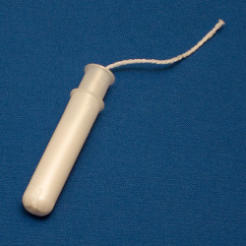You can’t plug the gap in funding for charities tackling domestic abuse against women with the tampon tax, says Alice Sharman.
In this week’s spending review the Chancellor announced £15m additional funding for women’s charities dealing with abuse, seemingly a great result for the women’s sector, until you look at where this additional funding has come from – the infamous tampon tax.
As a result, Osborne’s most recent funding announcement means that women are essentially being forced to finance their own support. The state won’t be paying out for a woman’s treatment for rape or domestic abuse, because she’s already paid for it herself.
The tax on sanitary products is worth £15m a year, and can’t be axed while under European law. Currently VAT is charged at 5 per cent on sanitary items, the lowest rate allowable under EU law but still deeming such products as “luxury items”.
In his announcement, Osborne compared the use of the tampon tax to the scheme of giving charities money from fines taken from banks for fixing libor rates. This is a comparison that seems more than just off.
As the North London Fawcett Society tweeted: “Comparing #tampontax to #libor implies we have control over our biology.”
To rub salt further into the wound, this announcement was made on the International Day for the Elimination of Violence against Women. Yet instead of raising awareness, the problem has been fobbed off to the women’s sector to deal with.
Granted, women are obviously not the only victims of domestic violence, but this funding has been announced purely for women’s charities, and women are the ones forced to pay out for this “luxury product”.
This is not a move for equality, this is compartmentalising two huge issues for women into a neat and tidy box – and implying that domestic violence is an issue for women to deal with.
Even Polly Neate, chief executive of Women’s Aid, one of the charities which is entitled to this funding, seems to have been caught by surprise about where the money has come from.
In a press release following the announcement of her charity receiving £2m from the Home Office for domestic abuse intervention, she welcomed the funding. But she added: “However, today the Chancellor announced that this money will come from the taxation on sanitary products.
“Whilst we welcome this money being used to help women, especially at a time where the government are campaigning for sanitary tax to be zero-rated, we need to be clear that domestic abuse is not just a women’s problem for taxation on women's products to solve – it is an issue for everyone in society and men and women must address it together.”
As Neate said, it is not just for women to solve this problem – men should be paying up too.
I’d be interested to hear how women’s charities really feel about accepting this funding. Of course it is hard to turn your nose up at money, but does it involve giving up on one fight for the benefit of another?









